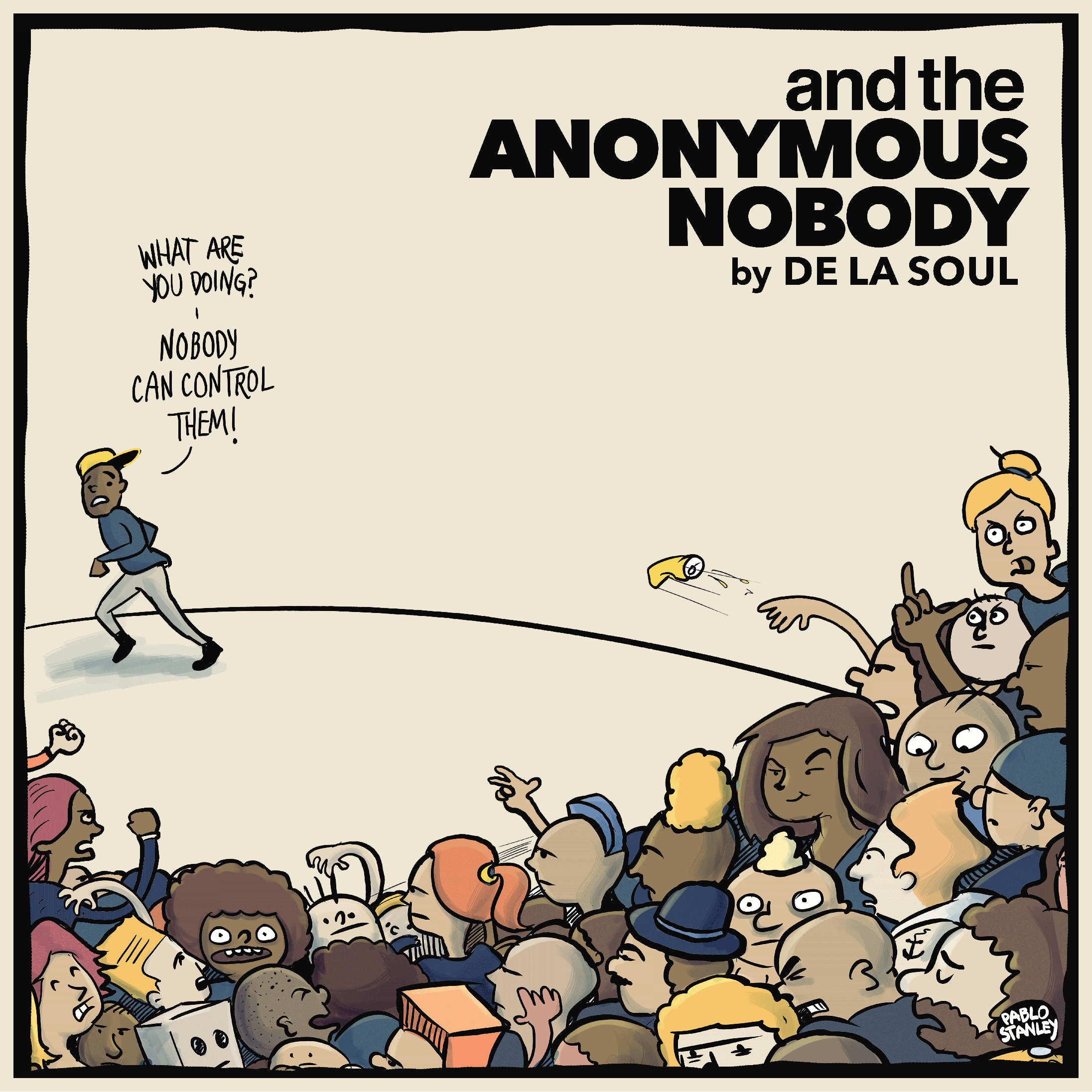For most of their career, De La Soul has been operating under the radar of modern rap music. In order to finance their latest album and the Anonymous Nobody…, the rap group posted a Kickstarter that received more than $600,000 in crowdsourced donations. Their unique style of sampling and blending of genres once again presents itself in their new album, and in the past has inspired collaborations with the alternative rap group Gorillaz, for which De La Soul won their first and only Grammy in 2006. The trio formed in Long Island in 1987, and, unlike most rappers, is not afraid to show their age. Indeed, the process of aging and the idea of death are themes that and the Anonymous Nobody…, the group’s first full album in eleven years, not only discusses, but openly embraces.
The album’s first track, “Genesis,” features poet and R&B solo artist Jill Scott. She asks the listener, “I mean have you cried for anything lately?” The band then delves into subject matter rarely discussed in rap music: not just death, but growing older and the accompanying desensitization to the injustices of the world around us. This becomes particularly apparent in the last two songs of the album, “Here in After” and “Exodus,” which serve as a means for the trio to reflect on their lives, along with the successes and failures they have experienced. The album allows the band to push boundaries while still staying true to their musical origins.
There is a certain candid quality to this album that can often be hard to find in modern rap. References to loved ones lost, time passed, and lessons learned add a sense of nostalgia to an album that stylistically is anything but nostalgic. The experimental fusion of R&B, soul and rock stand in stark contrast to the retrospective lyrics. For example, the song “Drawn” includes R&B-esque vocals provided by collaborator Little Dragon and even transitions into a dramatic, orchestral sound, finally closing with the song’s first rap verse nearly five minutes in. In this verse, the band references the difficulties of maintaining relationships on tour by saying, “You can lose the love of your life to a lifetime of love on tour / I didn’t mean to be a whore but my hormones / Had me like a fiend screamin’, “What you got for me?” Reflections like this allow for the band to anchor the album in a sense of reality. The contrast between the experimental and the nostalgic in the album acts as a means for the band to convey this profound realism. While they are rooted in their own personal histories and lives, the band members are not afraid to expand upon the rap genre. The wisdom of their years reflects in their messages on life and death.
Despite the relatively old age of the band, this work is still able to appeal to the modern rap audience. The band connects with this demographic through their utilization of a myriad of collaborators, both old and new, from a variety of genres (including Damon Albarn, Snoop Dogg, 2 Chainz, Little Dragon, David Byrne, and Usher). Employing these collaborators allows the band to experiment with a wide variety of musical styles throughout the course of the album. The album finds itself drifting between R&B inspired tracks such as “Greyhound” and “Drawn” and songs with a guitar-heavy alt-rock twist such as “Here in After,” all accompanied with relaxed, layered beats. The transitions between these various styles can come off as a little choppy at times, and in some parts the album’s better rap verses are undermined by seemingly arbitrary shifts in style.
While far from perfect, and the Anonymous Nobody… is an attempt on the part of the band to do justice to their longtime fans, in a way that is both reminiscent of their past works and innovative enough to stand on its own. Although De La Soul may have taken their time in releasing their new studio album, the end product is a stirring reflection on the issues that arise with growing older, both as an artist and as a morally conscious human being.






